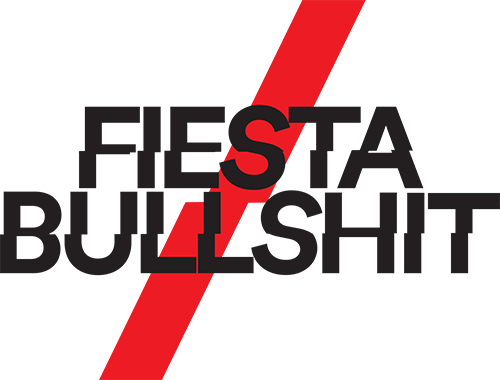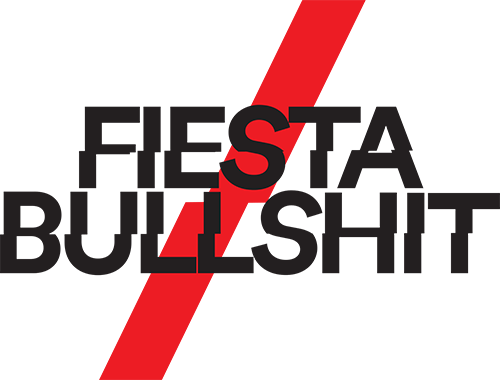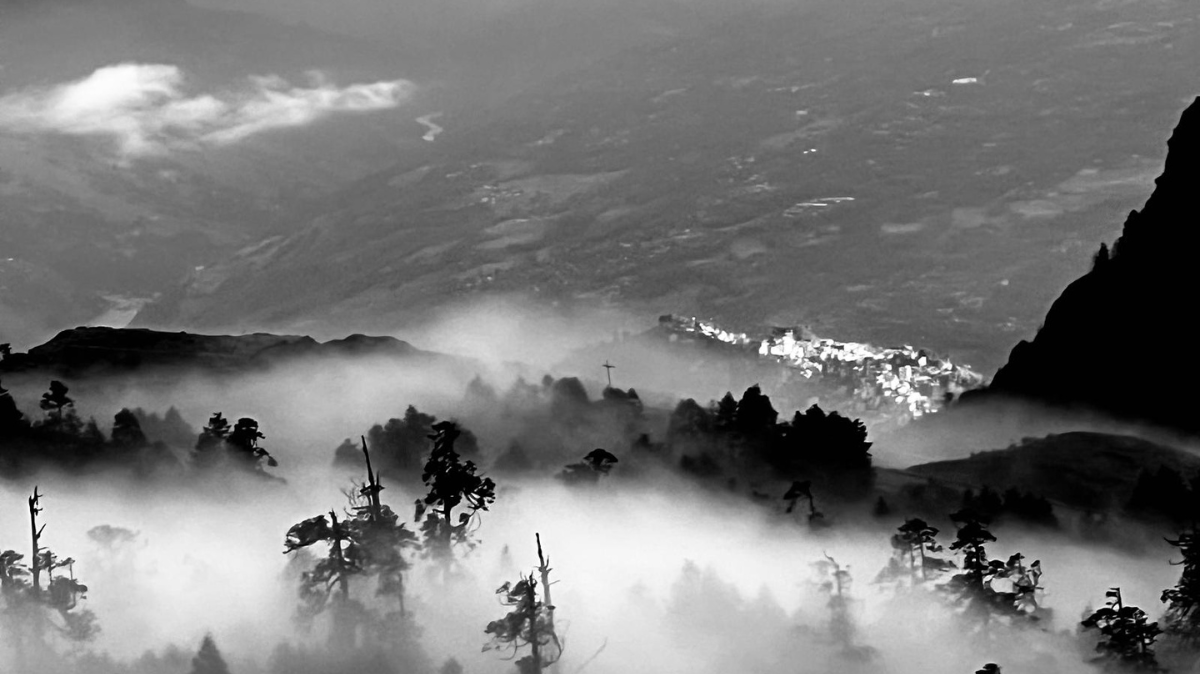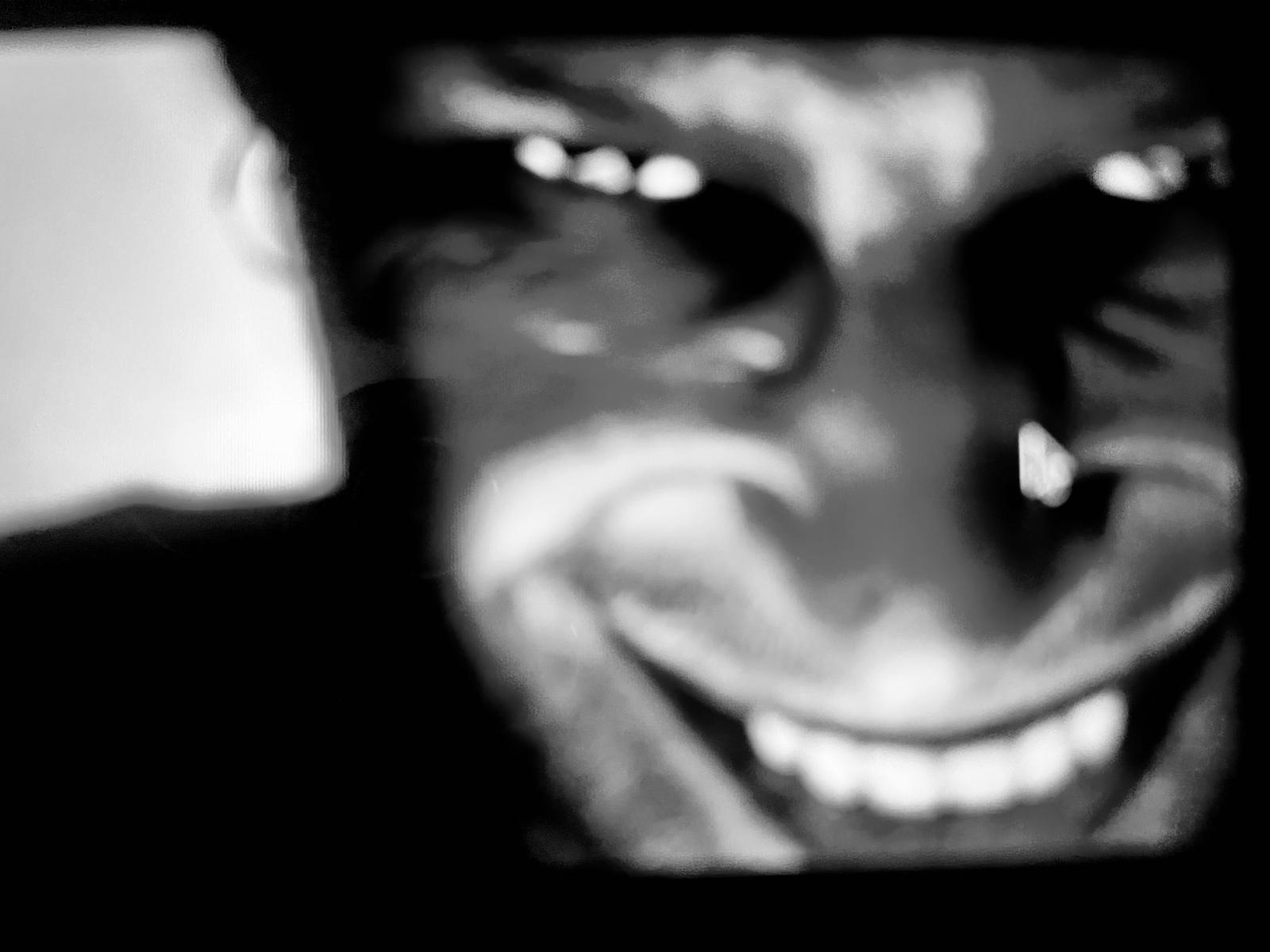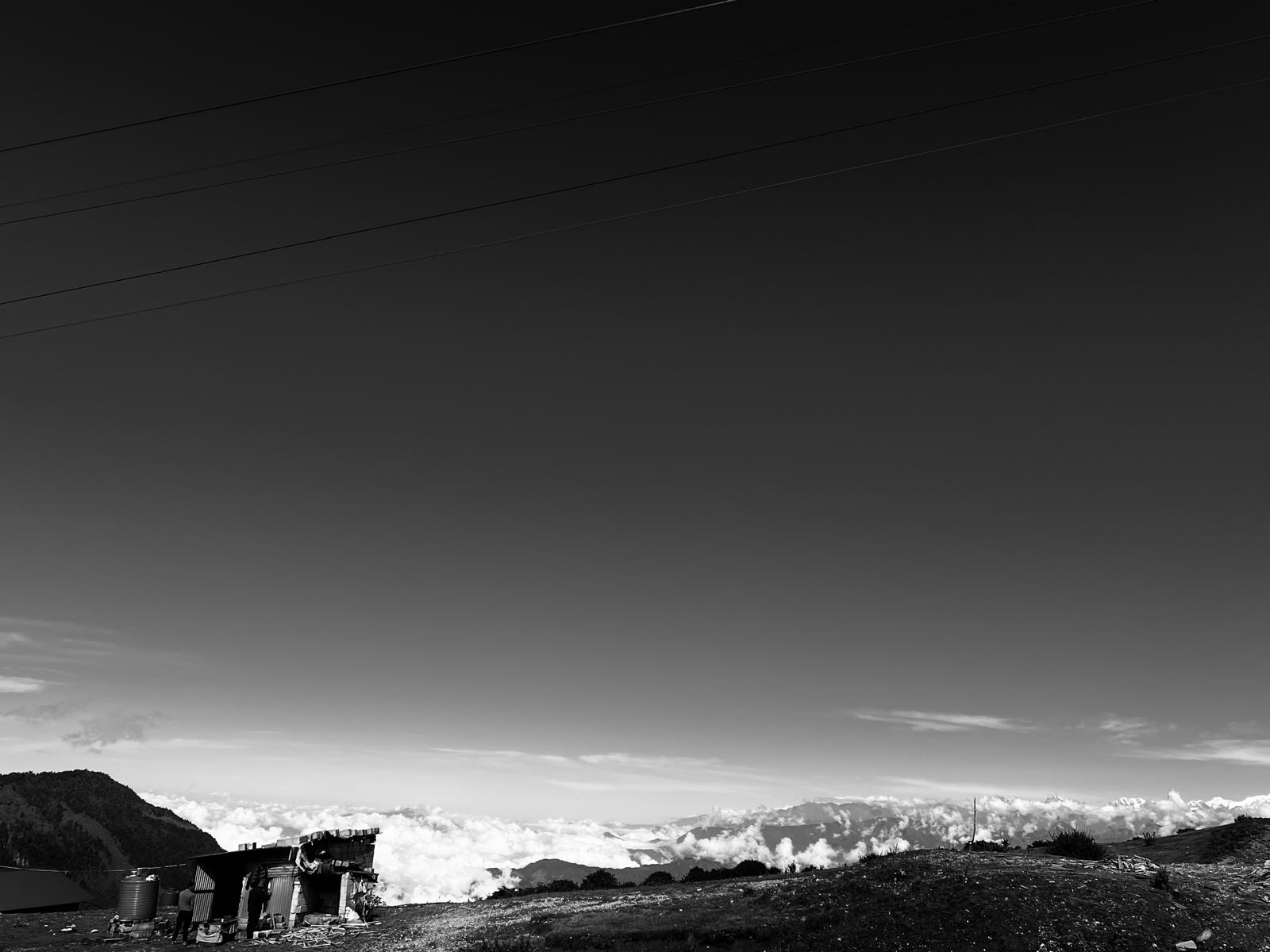NOWHERE-NOW HERE, HECTOR CASTELLS TRAVEL JOURNAL – NEPALESE CAPSULES: EPISODE XII.
Love is the only argument you can win by saying yes
—Patricia Lockwood, Priestdaddy
BEFORE THE NEPALI REVOLUTION
Now Here, Pharping, Nepal, August 29th 2025
It is the 36th anniversary of Life without your father in it and the Nepali government is about to collapse, and you are still oblivious to it.
Instead, you are acutely aware of being eight years older than daddy, and you get ready to do what you have been doing on this day since he is gone: going for a walk.
You load Olive, your obnoxious backpack, with your camera and your destroyed paperback copy of Priestdaddy, a favourite book devoted to a father.
Patricia Lockwood was a struggling writer and daughter when she finished it. She is a very fine tight-trauma-walker equally forgiving and unapologetic when it comes down to portraying Priest-daddy, always relying on her brilliant sense of humour to conceal the monster and underscore the human.
Now Here: Pharping, Nepal. 9am, August 29th, 2025
“Doubt thou the stars are fire; Doubt that the sun doth move; Doubt truth to be a liar; But never doubt I love.” —“Hamlet,” William Shakespeare.
You are in a paradise guesthouse, an almighty garden secluded under a pine forest run by a man who could be Hamlet’s dad.
He is sitting outside, on a little bamboo table, one spoon mingling with some sort of oats paste, the other holding a pencil drawing an exploded, roofless house on an A4.
It is the drawing of an apartment burnt to the ground except for its kitchen, where a cooking-pan containing oil and two eggs is boiling unattended.
Hamlet’s dad stops eating, gives you the A4 and lights up a cigarette thinner than him.
You ask about the lonely cooking pan.
He smiles.
“It was my kitchen on April 25th, 2015. I left the house with the first tremors; I left my cooker on and never came back. The building crumbled shortly after I escaped. I have been drawing a new one every day since everything collapsed.”
FOUR K
It is late August of 2025. He is saying that he has spent over a decade drawing the last instant of life before the devastating Earthquake: more than four thousand drawings. This could be your retirement plan.
“Can I see them?”
He points inside the house.
“First pile on your right. Check it out.”
You do as you are told. You were heavily trained to do that.
Marx would be disappointed.
You leaf through the heap of drawings. They are all exactly the same and yet different. It is a remarkable body of work on inevitability and hope, a perpetual eulogy to life before its immediate obliteration. You can picture the exhibition, its catalogue, and a world tour. Feels like having discovered Vivian Meyer.
They look as if he had drawn them all with a single line.
ONE LINE THREE LIVES
“Indeed. I’m getting good at it. “
And he is. The most recent ones are like faded sketches; the pencil almost fainted, the scene increasingly vanished in a dream-like suspension, as if daily routine was only helping to erase the memory of what happened instead of preserving it.
It is narcotic somehow.
The last A4 you see is the only one that defies the constant motion and evanescence of the work. There is a drawing of a stolid woman standing in the middle of the kitchen. She is half ablaze.
You look closer.
The Aphex Twin smile, the long hair, the blood… Oh MY BUDDHA!
You ask if she is who you think she is.
He says yes. She appeared in a nightmare. Everybody knows her. She is the Goddess of Death.
Fuck me. I thought her name was Lilly.
“Fuck you indeed,” he says.
“Ain’t no flower, just the thorn.”
I can feel it on my side, sinking.
EVERY OLD MAN
Hamlet’s dad’s name is Jorn, obviously. He could not possibly be your father but he could be Jesus Christ. He asks where are you going.
“NOWHERE, “ you say like a hapless orphan.
You want him to say, “don’t worry, I’ll come with you. Everything is going to be all right. I’m your father, Harper.”
He fails to match your dream, as most characters in reality. He still has the RIS though. He looks at you knowing what you want, shakes his head, smiles, points at a distant hill and says that there is a temple up there, some sort of shrine devoted to a Goddess whose name makes you think of a hip Greek restaurant in Hanoi.
“It is another version of the Furiarity.”
He would make a perfect dad. Dark and charming.
FURIARTY
It couldn’t be more fitting. You say thank you and set off towards the direction of Hamlet’s dad finger, beyond his property. A dark green forest spreads like an ocean of broccoli heads.
It is early in the morning and the thick mist is covering half of the long trunks like skimmed Greek yoghourt, and tiny birds come in and out of the lush green. They have otherworldly colours, iridescent and promiscuous, and they fly in erratic ways.
You don’t know anything about the flight of birds and you are half blind, so you unload Olive while walking a clearing, take out your glasses and the camera, and you see that their feathers and chests are smeared with blood, their flight a helpless fluttering lasting as long as their morbid heartbeats.
SUICIDAL CHIRPERS
They are all collapsing a few metres behind you and you wonder about the existence of suicidal birds. It chirps a bell, although mainly you remember the existence of lovebirds, the cute, irritating canaries that cease to eat and sleep when they become widowers.
Birds are highly stressful creatures suffering from chronic tachycardia: they are lovely to watch and unbearable to touch.
You stay put, try to cancel or disguise the agonizing chirping behind you, and look ahead into the stretch of forest where birds aren’t coming out anymore.
You see nothing but trees and then you hear a frantic flapping inside the thick, long branches of a bunch of Juniper trees, perhaps broccoli trees?
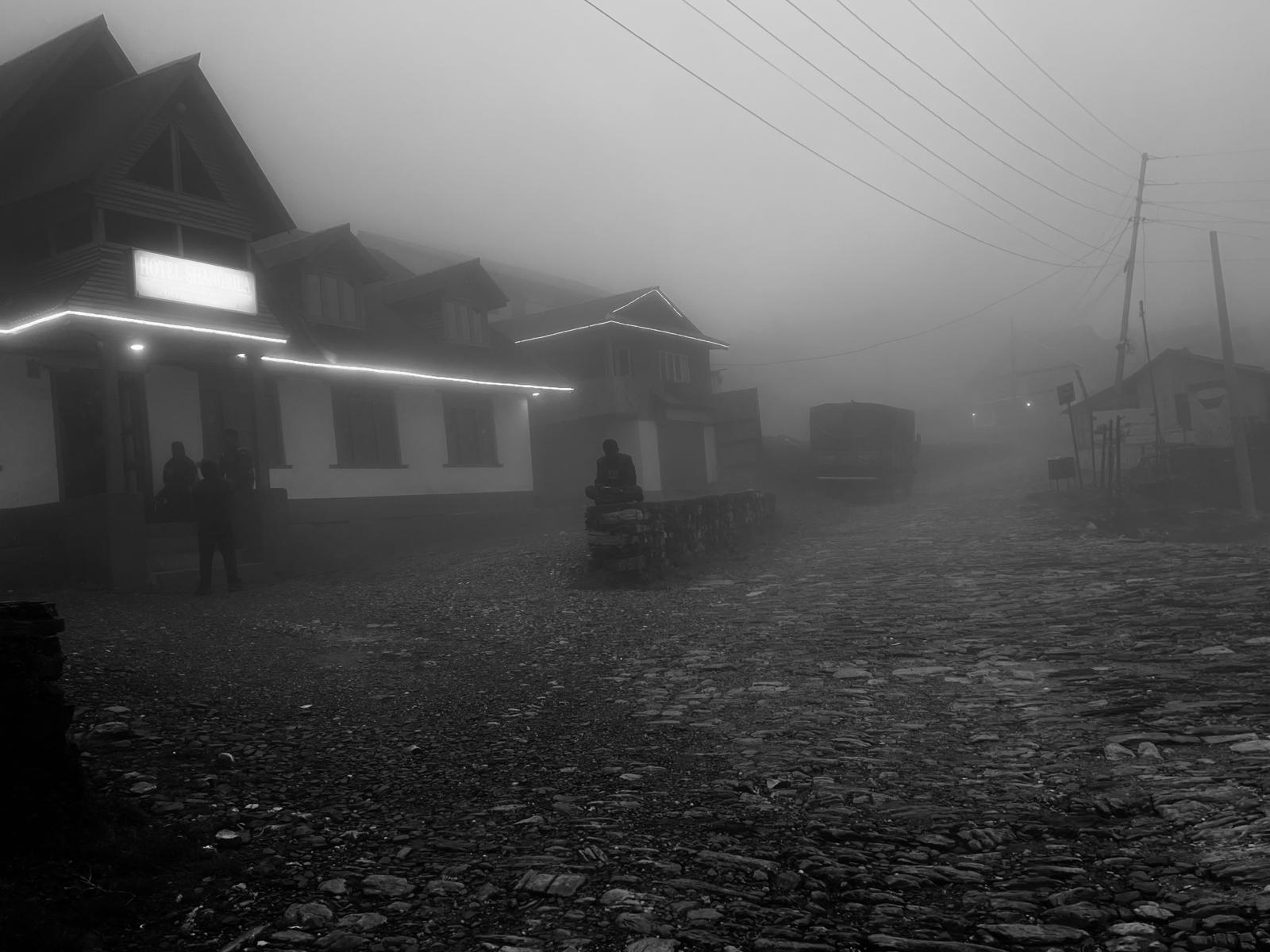 THE BIRD-BEAST
THE BIRD-BEAST
A corpulent lady of dark skin and hair comes out of the jungle and into the clearing sporting a white tubular dress and a convoluted necklace that could have belonged to a Maasai.
She is grinning like Clockwork Orange and flouncing her limbs. As she approaches you realise that her dress is covered in blood.
PRAYING HANDS EMOJI
She says Namaste and her voice is quite angelic, heavenly-like, so is her smile.
You bow at her and form the praying hands emoji.
She smiles.
You sneakily point the camera at her. She spots your device straight away and now she looks like the member of a cannibal tribe you have forgotten.
“No photos! Erase that one!”
It is a clear order coming from a perfect stranger.
“I don’t obey strangers unless they pay me. It is my dad’s anniversary and I’m taking photos for him. It is a sacred tradition.”
DRAGONFLY
Her nostrils swollen up: she makes a perfect pissed off dragon face, smoke coming out of her nasal septum.
She opens her arms like a bird of prey, and immediately shuts them around her torso until becoming as compact as a terracotta soldier.
She is four times your width and she could sit on you and make a pita slice with your smashed meat.
You can clearly picture that. And she can clearly picture you picturing that.
“I’m Sila, Goddess of this mountain and first disciple of Master K.”
You don’t know who Master K is. You are only worried about a flying thing.
“What’s with the birds?
“Oh, they are lovely, aren’t they?”
“And mostly dead. Why is that?”
“Is the nature of my God: nothing pleases him more than sacrificed offerings.”
Elton John’s song comes to your brain, although not to the rescue, rather far from it.
It’s a human sign
When things go wrong
When the scent of her lingers
And temptation’s strong
NOW HERE, Pharping, Nepal, September 2025
“My father despises cats. He believes them to be Democrats. He considers them to be little mean hillary clintons covered all over with feminist legfur. Cats would have abortions, if given half a chance. Cats would have abortions for fun. Consequently our own soft sinner, a soulful snowshoe named Alice, will stay shut in the bedroom upstairs, padding back and forth on cashmere paws, campaigning for equal pay, educating me about my reproductive system, and generally plotting the downfall of all men.”
— Patricia Lockwood. “Priestdaddy.”
She asks what my faith is. I understand face. I reply “Harper’s Face,” and she inflicts me a blunt scratch on my left side with a hidden claw.
It is savage. I’m bleeding.
“In the temple of my God, blood is the only currency.”
I’m confused with the alternate pronouns. She belongs to many things and you don’t seem to belong to a single one. You are in outrageous disadvantage, already bleeding. Your knees are like jelly when she says: “Walk with me. Will make a puja for your father.”
I don’t know what a puja is and I don’t want to walk with her, but today is your birthday and his anniversary and you know it is the day when reality cracks and things like this happen. You have no alternative: you must surrender.
“Daddy issues won’t qualify for an offering,” she says. “That’s why I cut you, stop being a princess.”
The Altar of Master K.
We walk into the jungle. It’s a bit like Apocalypse Himalayan Now —or perhaps you are being a princess.
There are dozens of bird bones and feathers hanging off the trees, and traces of blood on the crunching dry leaves, and two Pink Floyd cows grazing the anomaly field.
When you turn your life into fiction you realise how sparse fiction is, therefore you start missing life, its abundance.
Most of the time, literature lives in the paradoxical realm in between.
You love to meander about; you enjoy destroying routines, ripping off landscapes, obliterating the known idioms, surrender to undecipherable eavesdropping, turning Sundays into Mondays and anniversaries into birthdays.
Your father died on your birthday and, inevitably, a slight and furious percentage of you strongly dislikes him for doing so, although you know that it is the best farewell compliment that you could possibly have gotten.
SILA
Sila, the Goddess, turns around and catches you drifting in Orphan Wasteland. It happens every time you try to write about where Literature lives.
Sila says that you must pay attention and erase your thinking.
You are here.
Nowhere.
Right now.
You look up. There is no reality, but a long thin silver woman. She says that her name is Mary. She looks like Hamlet’s auntie. She is from Ireland. She is 83 years old and she lives here, in the hills outside her son’s castle.
She has two Pink Floyd cows and a field, and says that George Harrison came to her in 1968 and told her that the Revolution would take longer to reach Nepal.
“It is coming anytime now.”
You thank her for the information and ask her if she is alive.
“We are talking aren’t we? As it turns out, I’m not here as George Harrison’s prophet. Although the Revolution is definitely coming.”
She points at her left hand with her eyes.
Her body is half ablaze now, exactly like in the drawing of Hamlet’s dad.
But she is much older than the woman in the drawing.
YOU LOOK AROUND
You realise you are inside the kitchen in the painting. You empathise with bird’s tachycardia.
The cooking pan is boiling and the eggs are about to explode, and there is a bit of meat underneath the pan, and it catches fire, and the napkin idly left there, on the cook, follows, and the kitchen goes next, and all of a sudden you are writing and the flames are all around you and the earth starts cracking, opens, the buildings shifting and crumbling, the asphalt undulating and bursting, while architecture is losing all its angles, like a perfect circle drawn by young Picasso.
The Earth opens and the Revolution gets in.
Thank your father.
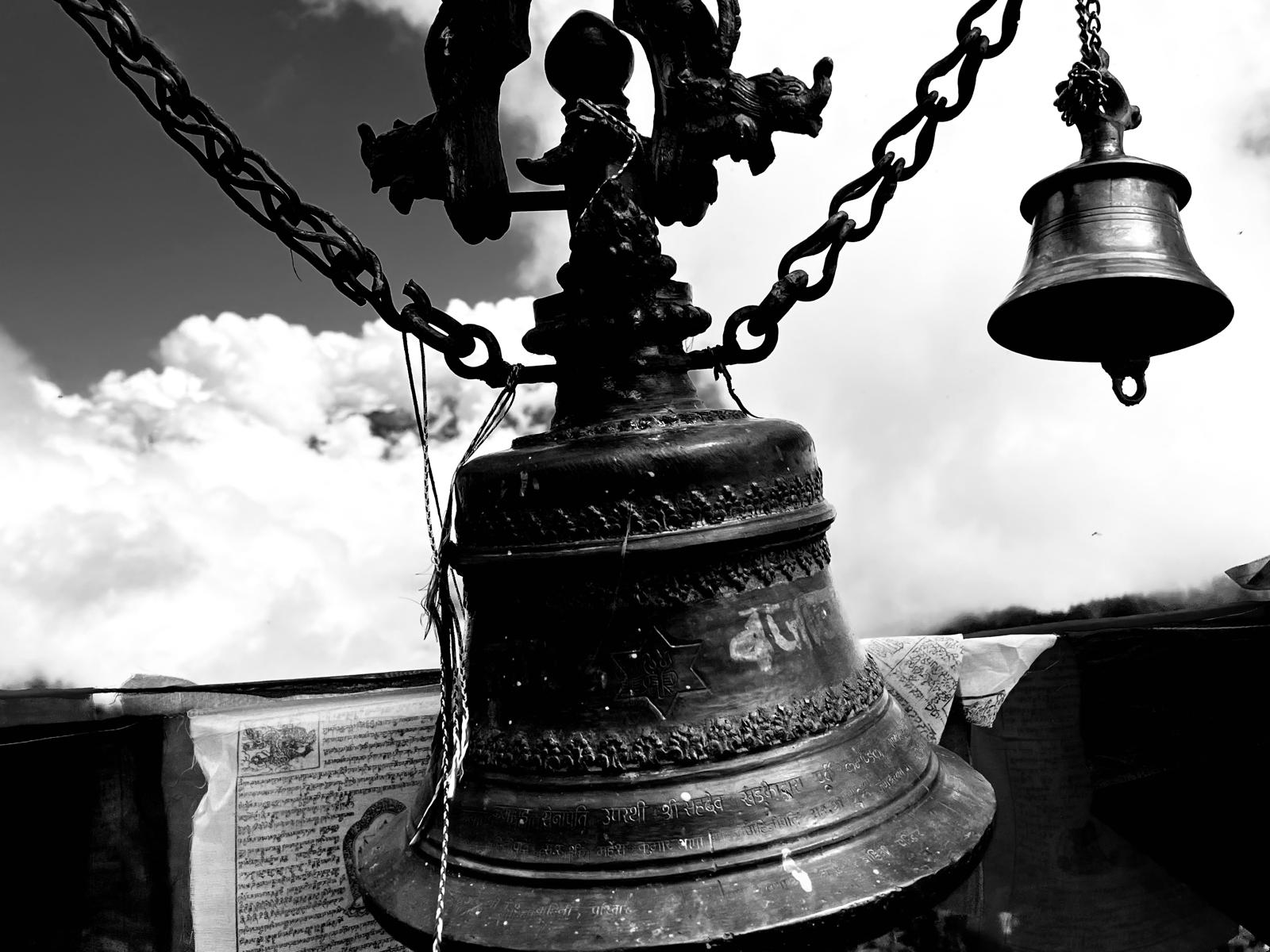
TEXT: Hector Castells
JORN’S “4000 WAYS OF VANISHING”
EXHIBITION CATALOGUE FOR PRESS ONLY
